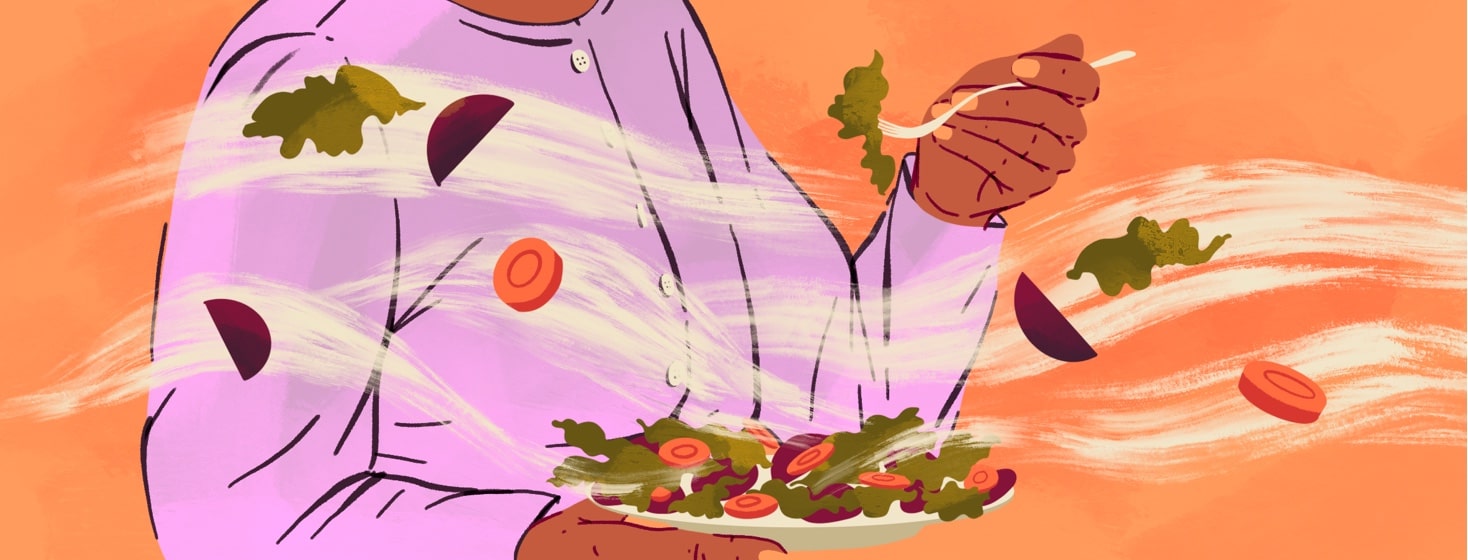You Can't Always Believe What You See
Watching your food move around your plate and then fly off the table would be distressing for anyone. My mother had been “seeing things” for quite a few months, but this episode with the food took things to a new level. It also involved my father because he was asked to catch the errant food.
Diagnosed with Charles Bonnet Syndrome
As described in Part 1 of this story, both of my parents are in residential care, in their nineties, and my mother is legally blind with dry AMD. After this episode with the flying food, she was eventually diagnosed with Charles Bonnet Syndrome.
Vision-impaired people with this syndrome see things that aren’t really there. The brain makes up “visions” because it is tired of not receiving proper signals from the eyes. It is not a sign of any form of dementia. Not all doctors are familiar with this syndrome, so our story is worth sharing.
Trial and error
This diagnosis was just the beginning of the journey (for all of us). Whilst we now had an answer to what was going on, or at least a name for it, we also had many questions. How would we handle this moving forward? How should we respond to my mother? How would she cope? Indeed, how would any of us cope?
I’m 800 kilometers away and can’t visit during COVID. We weren’t given any suggestions on how to handle this situation, so there was a lot of research to be done, and we proceeded with trial and error.
This is the rest of the story to-date.
The things my mother was seeing weren't real
I explained to my mother what was happening to her, and that it had a name. Then, I explained that she wasn’t alone, and that this happened to quite a few other people who had vision loss. I made sure she realized that she did not have dementia of any kind.
I asked her to please believe my father when he told her that the things she was seeing weren’t real. This was particularly important because she often asked him to fix whatever she thought was wrong in the room. Mum couldn’t get to things easily, to check if they were real, because she uses a wheelchair.
Removing unnecessary items from the room
I’d read that it’s a good idea to remove unnecessary things around the room and from the walls. Evidently these things can trigger the visions. My mother had pretty scarves hanging on the walls, lots of photos on the table and other decorative bits and pieces around. With her agreement, the nurses put some of these away, and just left out the essentials.
Sometimes distractions can help
I asked my dad to turn on the television or radio, or change the lighting when mum had these visions. Sometimes distractions can occupy the brain and stop it from sending nonsense signals to the eyes.
Distinguishing fact from fantasy
No visitors were allowed into residential care during most of 2020, so all my communication with my mother was over the phone. It was often a challenge for me to distinguish fact from fantasy in these conversations.
Were there lots of animals walking around outside her window? I don’t think so! Did someone bring in a dog to visit them? Possibly. Did school children come in and sing? No, not during COVID. I had to work out how long to listen to her talk about her visions (because someone had to listen) and when to get her onto another topic.
But then she told me they’d gone out for the day with a group in a bus and stayed overnight somewhere. That was definitely not on! It seemed the visions were escalating.
An infection intensified the delusions
This is where a scheduled blood and urine test proved invaluable. It turned out mum had an infection, and this was increasing her sights and she was believing them. She couldn’t tell real from imaginary at this time and became quite delusional. She was admitted to hospital.
I was able to travel to be with her in hospital, under strict conditions, and I went around explaining to any nurses or doctors who would listen, that she didn’t have dementia and please keep up the antibiotics. Eventually the medication did its job, and mum recovered. She still had visions, but she recognized that they weren’t real. We learnt to check regularly for infections after this scary experience.
Very distressing for family
It was distressing for my father, too. Mum asked him to reorganize all the things the “people” had messed up, but Dad couldn’t see it, so of course, couldn’t do anything. He couldn’t catch the flying food or mop up the non-existent water or get rid of the people outside the window. Then Mum would be upset with him. This was such a shame and very difficult to deal with.
Ending on a funny note
Although all this was terribly distressing, there was one funny moment. No one could visit the residential care facility during the height of COVID-19, but I was offered the opportunity of a “Window Visit” with my parents. This would entail me sitting in the garden outside their closed window, and talking to them on the phone.
I had a chuckle to myself as I declined this opportunity. I had spent all year trying to convince Mum that there was no-one outside her window. How would she cope if suddenly she saw, through her window, her daughter who lives 800 kilometers away? That was too much to contemplate!

Join the conversation